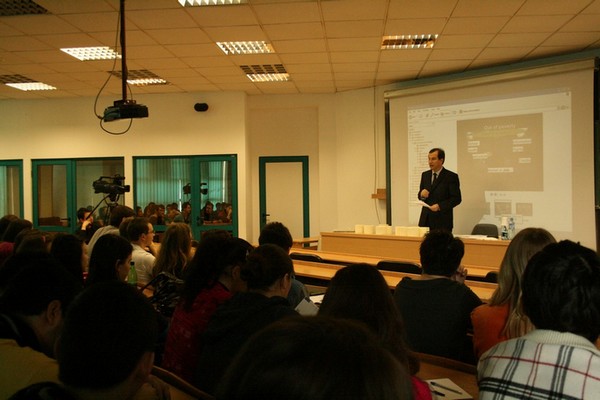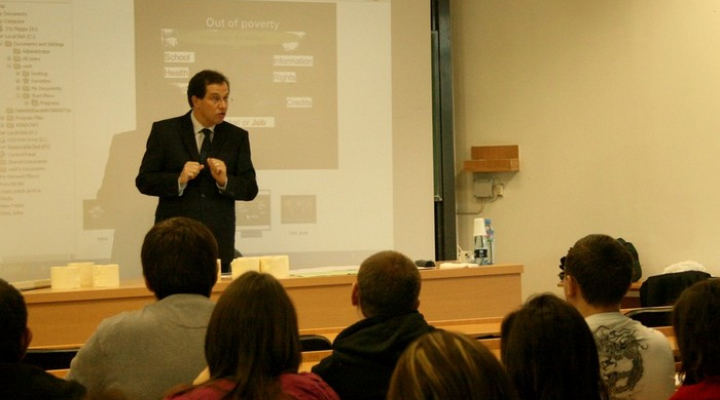Is there a way out of the crisis?
DAHR MEP Csaba Sógor held a lecture for economics students on Friday, February 22nd 2013 in Miercurea-Ciuc, entitled Is there a way out of the crisis? The lecture was held within the Economics and Economic Policy in the European Union course of the Faculty of Economics and Social Sciences from Sapientia University.
Sógor highlighted the social aspects of the economic crisis, mentioning the social, cultural and moral problems that influence financial indicators.
Presenting the example Scandinavian states have set, the MEP stressed the importance of human resources and talked about the investments these countries have made in the fields of innovation, education and research. “Believing that people should be able to solve their problems on a local level, Scandinavians have also made good use of the principle of subsidiarity and have decentralized their government. In a balanced society all citizens should actively think and work, including senior citizens, people with disabilities or - at least part-time - mothers returning from maternity leaves” – explained Sógor, remarking that Romanian centralized government costs too much, which in turn, hinders putting an end to the economic crisis.

“As long as there is a moral crisis, we will never be able to put an end to the economic one. Every crisis is also an opportunity to improve things. There is a need for austerity measures, but there is also a need for solidarity. We need to learn how to be economically efficient, we need to be able to protect and renew our resources. We also need to restore the value of work, so we can take pride in it and work with pleasure. Work was the core idea in President Obama’s State of the Union speech as well” – said Sógor.
The MEP continued with the issue of our planet’s growing population and its consequences: “When our planet’s population reaches nine million, Europe’s and North America’s population will have decreased while Africa’s will have doubled, and there will be a billion more Asians. These are rough numbers, but they help us fathom the economic and social consequences. The countries with the most active population will be able to develop the most” – concluded the Transylvanian MEP. He also mentioned Europe’s 2020 strategy, intended to diminish these problems and to set a new course for EU Member States. As part of this strategy Romania made a commitment to increase the rate of employment for people of ages 16-64 to 70% (62,8% in 2011), decrease the rate of early school leavers to 11,3% (17,5% in 2011) and raise the number of people between ages 30-34 who have a diploma from 20,4% in 2011 to 26,7%.











